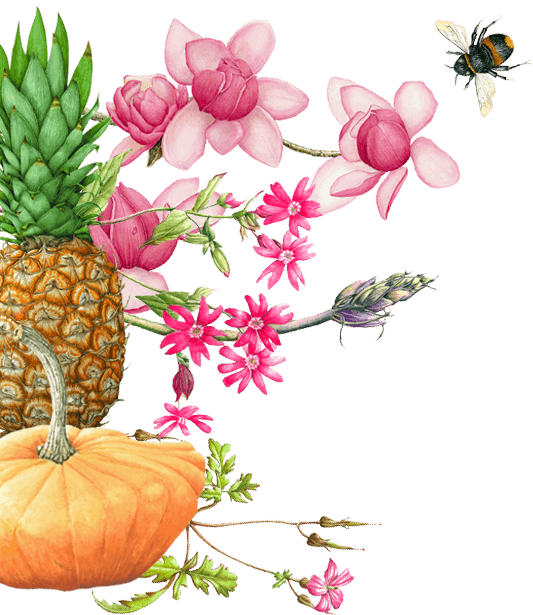Our Rare Breed Story
- 11th Mar 2019
Here at Heligan, pigs are a real favourite with our visitors and have been for many years. It is well known that our pigs have a job to do, and work hard around our estate to clear brambles and turn over pastures, verges and seed beds. This work is vital as part of our low impact estate management methods that support our ethos of protecting our countryside and biodiversity. Alongside their work, each spring, new farrows of piglets arrive to our sows and cause great excitement and squeals of delight from everyone that sees them. Who can resist a pile of newborn piglets!
What some of our visitors may not be aware of though, is how these new arrivals are part of a rare breed conservation project started here on our farm, to protect the British breeds most at risk of being lost to our future generations. The Rare Breeds Survival Trust (RBST), the only UK charity dedicated to monitoring, preserving and promoting rare breed farm animals, released their yearly 2018 Rare Breeds danger list report in May, with pig breeds identified as the animals most at risk of dying out.
British Lop pigs currently have as few as 161 breeding females left, of which Heligan is proud to own 3 of them and are delighted to be actively working on a conservation breeding programme to support the work already started by dedicated breeders across the UK.
In June 2018, one of our British Lop sow’s delivered 8 piglets and of these, it was assessed that two met the breed standards to become registered with the Breed society. These two young pigs have now been recorded within national data collection, completed by The British Lop Pig society and the British Pig Association (BPA), and will contribute to hopefully increasing numbers of these lovely pigs. The next danger report is released in the Spring of 2019
Our young sow, Heligan Actress, will continue to live at Heligan and it is planned that she will go on to breed her first litter of piglets this Summer. The boar that resides at Heligan is her father and so Heligan recently needed to locate a boar, to service our young sow, who carries an unrelated bloodline.
Trevaskis Farm is located in Hayle, West Cornwall and offers the complete countryside experience to their visitors. They breed British Lops amongst other animals and visitors can explore their farm and countryside, eat fresh local produce in their award-winning restaurant and pick their own fresh fruit from their orchards. With an ethos that fits so well with Heligan’s own, Trevaskis Farm is perfect for a collaboration in delivering conservation breeding of this breed that is native to Cornwall. This March one of The Trevaskis boars will come to stay at Heligan for a number of weeks to breed with Heligan Actress and hopefully produce a beautiful litter in the Summer.
Heligan’s June bred young boar, Heligan Cornishman was recently seen by Giles Eustice and we are proud that he has now gone to join the Trevaskis herd as a breeding boar.
Giles Eustice, Chairman of the Lop pig Society, and owner of Trevaskis Farm, ‘After selling some initial pedigree British Lop breeding stock to Heligan Gardens a few years ago I am really pleased to see the progress they have made with the breed along with the ample enthusiasm they display toward the vital work required in maintaining these rare lines.
As they progress with their rare breed farm park plans I am pleased to be working alongside them collaboratively both under the umbrella of Trevaskis Farm and as Chairman of the British Lop pig society. Getting footholds in locations like this is vital for the breed's survival and helps raise awareness. It is very exciting !’
Laura Chesterfield, Heligan Livestock Experience manager ‘ We are delighted to have a started our conservation breeding programme in such a positive way. We hope that by working closely with Trevaskis Farm we can contribute in a real way to the conservation of this very British breed. To both have the same goal of protecting these small gene pools for future generations, and to actively work together means that this Cornish breed stands more chance of survival.’




